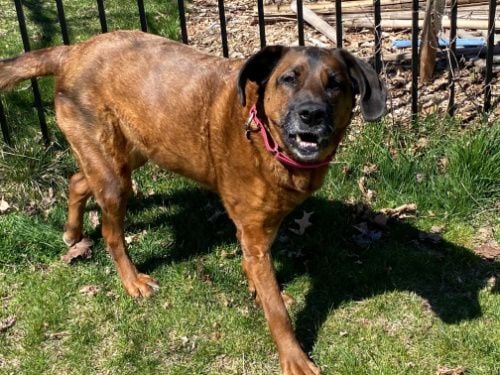What to Know About Pulmonary Adenocarcinoma
Pulmonary adenocarcinoma is a common and aggressive form of lung cancer in dogs, accounting for nearly 80% of canine lung neoplasia cases. The primary treatment is surgical tumor removal, sometimes combined with chemotherapy or radiation therapy for inoperable cases. Prognosis depends on tumor size and grade, ranging from over 16 months for small, low-grade tumors to only 3 months for high-grade, metastatic cancers despite treatment.
While all breeds are at risk for developing lung cancer, certain breeds such as Boxers, Doberman Pinschers, Irish Setters, and Bernese Mountain Dogs appear to have a higher susceptibility to pulmonary adenocarcinoma. Similar to humans, exposure to secondhand cigarette smoke and other airborne pollutants can increase a dog's risk of developing this form of lung cancer.
Treatment Options
The primary treatment for dogs diagnosed with pulmonary adenocarcinoma is surgical removal of the tumor(s). Dogs generally tolerate this procedure well. Depending on the tumor's grade, size, and extent, chemotherapy may be recommended as an additional treatment. However, chemotherapy alone, without surgical removal, does not significantly reduce tumor size or improve life expectancy.
In cases where surgery is not possible, a combination of radiation therapy and chemotherapy may be recommended. Recent studies have also shown promise for targeted therapies. Palladia, a tyrosine kinase inhibitor, has been used successfully in several publications for treating canine pulmonary adenocarcinoma. Additionally, research has identified a common mutation in the ERBB2 gene (also known as HER2) in canine pulmonary carcinoma, leading to the exploration of HER2 inhibitors like lapatinib as potential treatment options.
To alleviate symptoms, anti-inflammatory medications such as corticosteroids (prednisone, prednisolone, dexamethasone) can be helpful. Secondary infections like pneumonia may develop, necessitating the use of antibiotics.
Prognosis
For dogs with pulmonary adenocarcinoma, tumor size is an important prognostic factor. Dogs with small, low-grade tumors without lymph node involvement have an average life expectancy of 16 months or more with surgical treatment alone. On the other hand, dogs with high-grade tumors and lymph node involvement have an average life expectancy of only three months, even with surgical intervention.
FidoCure's targeted therapies have shown promising results in canine pulmonary adenocarcinoma cases. The case of Adley, a 6.5-year-old female Rhodesian Ridgeback mix, illustrates this potential. Initially diagnosed with grade I pulmonary carcinoma and complex mammary carcinoma, Adley's condition progressed despite surgical interventions. When faced with metastatic spread, her prognosis was poor, so Adley's family opted for enrollment in the FidoCure® Precision Medicine Platform. Following targeted therapy, Adley experienced tumor stabilization and maintained a good quality of life for several months beyond her initial prognosis, demonstrating the promise of personalized medicine in veterinary oncology.
For the most accurate prognosis and treatment recommendations for your dog with pulmonary adenocarcinoma, consult your veterinarian or a veterinary oncologist. They can provide personalized guidance based on your dog's specific case, considering factors such as cancer stage, grade, tumor location, and concurrent health issues.


